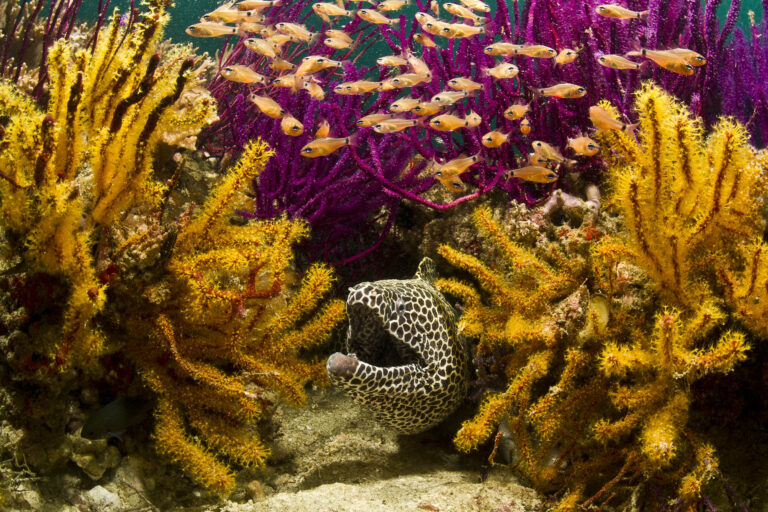When wildfires rage across landscapes, smoke fills our skies and chokes our lungs. It makes headlines, emergency measures are triggered, and communities rally to respond. We act because we can see it, smell it, and feel it. But beneath the ocean’s surface, another crisis is silently unfolding. What happens when our oceans — the planet’s blue lungs — struggle to breathe? As global leaders and changemakers gather for the U.N. Oceans Conference, we must confront a growing but often overlooked threat: marine hypoxia. When oxygen levels in parts of the ocean drop dangerously low, they create hypoxic “dead zones” where marine life can no longer thrive. Over the past 50 years, dead zones and low-oxygen areas in the open ocean have grown by 4.5 million square kilometers (1.7 million square miles) — an area the size of the European Union — and the volume of areas with no oxygen has more than quadrupled. In coastal zones, there were just 10 recorded dead zones in the 1960s; today, more than 500 coastal sites have reported hypoxia. Humpback whales off the coast of Australia. Image courtesy of Emilie Ledwidge/Ocean Image Bank. Dead zones were almost entirely unknown until the use of fertilizers became widespread. Despite a massive boost in agricultural yields, it sparked a chain reaction reaching the depths of the ocean. When excess nutrients (such as nitrogen and phosphorus) from agriculture, urban runoff and industrial waste wash into rivers and coastal waters, they trigger massive algal blooms that block sunlight and…This article was originally published on Mongabay
Search
Recent Research
Want your Blog Article featured on our website?
Research
Featured News
Explaining Katsina’s Massive Leap to 2nd Position in the 2025 Climate Governance Ranking
In 2024, during the first edition of the Subnational Climate Governance Performance Rating and Ranking,
COP30: Firm to connect institutions with international climate finance opportunities
SISTME, a climate change and biodiversity conservation consulting firm based in Argentina, has offered to
From resistance to planetary governance, Indigenous women redefine global climate action
While world leaders negotiate behind closed doors in the Blue Zone of COP30, Indigenous Women
Sahara Group Foundation launches 16th Sahara Go Recycling Hub to boost environmental sustainability, economic empowerment
Sahara Group Foundation, the corporate social impact arm of Sahara Group, has commissioned its 16th
Climate finance is the lifeblood of climate action – Simon Stiell at COP30
Remarks delivered by UN Climate Change Executive Secretary, Simon Stiell, at the third High-Level Ministerial
UNDP, REA, GEF commission Plateau solar mini-grid to power agricultural value chains, empower rural communities
The United Nations Development Programme (UNDP), in partnership with the Rural Electrification Agency (REA) and
COP30: Africa urges world leaders to turn pledges into action
Africa has called on the world leaders to turn their pledges into action regarding the
Thousands join global marches calling on govts at COP30 to deliver climate justice
An estimated 30,000 people marched through the Brazilian city of Belém on Saturday, November 15,


